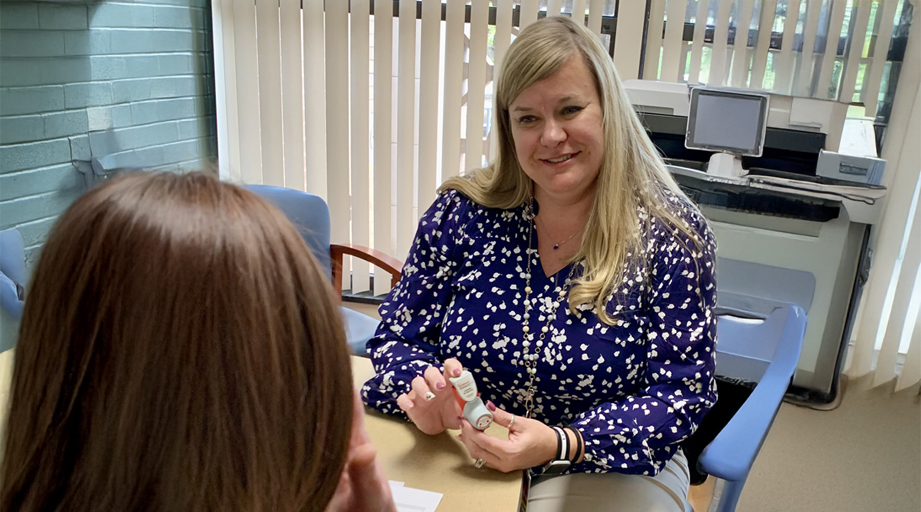
A recently formed COVID-19 Airway Team at University of Iowa Hospitals & Clinics is now performing intubations for all critically ill patients with COVID-19. The team includes a resident, anesthesiologist, respiratory therapist, nurse – and an emergency medicine pharmacist.
 Brett Faine, an emergency medicine clinical pharmacy specialist at the 811-bed UI Hospitals & Clinics, said he pitched the idea of including an emergency medicine pharmacist after hearing the hospital planned to create a Rapid Sequence Intubation team specifically for COVID-19 patients or those considered under investigation for COVID-19.
Brett Faine, an emergency medicine clinical pharmacy specialist at the 811-bed UI Hospitals & Clinics, said he pitched the idea of including an emergency medicine pharmacist after hearing the hospital planned to create a Rapid Sequence Intubation team specifically for COVID-19 patients or those considered under investigation for COVID-19.
“The idea was to implement this team to do all of those intubations and that way you decrease exposure to healthcare workers because you have a small team doing them -- it limits the people in those rooms -- and it sets a precedent for how that intubation goes every time,” said Faine, who is also a clinical assistant professor at the University of Iowa College of Pharmacy.
UI Hospitals & Clinics is the Iowa’s only Level 1 academic medical center, so it is seeing a fair amount of COVID-19 cases, Faine said, adding that the ICU is full of critically ill COVID-19 patients and many of them are mechanically ventilated.
Faine said he wanted to provide as much help as possible to those responding to codes in what is a high-pressure setting.
“These are very tense situations because the patients are very sick and they tend to crash really quickly,” he said. “As people are gowning and donning their PPE, the last thing they want to worry about is getting drugs ready and making sure that the drugs are appropriate based on vital signs and lab values.
“Having the pharmacist take that role over to make drug and dosing recommendations, and preparing the medication so by the time they have their gear on and their plan for intubation is ready to go -- we hand them the drug and walk in the room. It takes that level of stress that is already certainly heightened from any other intubation that I have ever been part of it … it takes a little layer off of that.”
The responsibilities of the emergency medicine pharmacist on the airway team include development of the medication kit, facilitation of rapid delivery of medications at bedside for endotracheal intubations, evaluation of the patient, preparation of medications, and documentation of interventions and recommendations provided during and after the intubation.
So far, the feedback about including a pharmacist on the airway team has been positive. Faine said if other institutions are planning to create a dedicated COVID-19 Airway Team, they should consider having a pharmacist on the team, similar to the way pharmacists respond to cardiac arrests.
The COVID-19 pandemic has changed the current environment in the emergency department and changed operations, Faine said. There has been a marked decrease in volume of patients unrelated to COVID-19.
The hospital was able to “go live” with the COVID-19 Airway Team in a little more than a week. Faine said he adjusted staffing to account for the addition of an emergency medicine pharmacist to the COVID-19 Airway Team, shifting to 24-hour coverage.
It may mean working some extra hours, but, “What I look at is, ‘How can we be helpful and impactful for the institution using our skill set,’” Faine said.
“We’re expected to have our peak [in COVID-19 cases] in a couple of weeks,” he said. “Whether we surge or not, we’re at least ready for that and we’ll be here 24-7 during that time.”
For more information and free tools regarding the pandemic, including our regularly updated Assessment of Evidence for COVID-19-Related Treatments, visit ASHP’s COVID-19 Resource Center and the COVID-19 Community at ASHP Connect.







